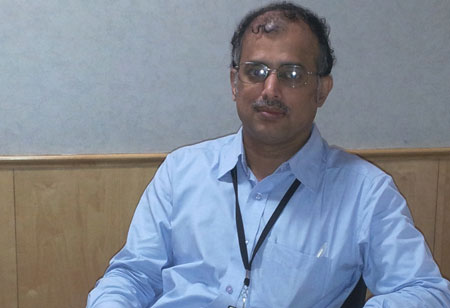By S. Ramachandran, Vice-President – Human Resources,
CavinKare

S. Ramachandran, Vice-President – Human Resources, CavinKare
The growth of learning and development practices, evolving at higher standards across many industries and companies today, is helping the organizations and their employees in achieving peak performance. In order to be competitive in the market place, organizations must provide a relevant platform for Continuous Learning (CL), sufficient opportunity for applying the newly learnt knowledge and skill, thereby focusing on all round development of people as well as for putting the organization in the growth orbit. There should be no limitations when it comes to facilitating learning opportunities to the employees. As organizations evolve, throughout its journey, they would have experienced many successes by following several best practices. It is therefore, the responsibility of the senior leadership and policy makers to recognise those practices which led the organisation to success, if necessary, remodel them according to the current business requirement so that learning and unlearning happen continuously.
At the same time, there should not be any hesitation to question the relevance of old practices to modern requirements. Corrections can be made to the processes or even get away with those practices which are not relevant, sharpening the thoughts to today’s changing needs.
A dynamic organisation will recognise the following and put them into practice:
Two aspects of skills are very important for people to propel any organization’s growth. They are - Technical or domain expertise and behavioral change. The technical skills programs allow an individual to obtain the necessary expertise relating to the field of work including the re-skilling so that the individual will become fit enough to perform the job to the highest levels of expectation. However, Behavioural change is very important. Behavioral change which talks about the right attitude will help the people to use their fullest potential with all the enthusiasm, energy and passion in such a way that the individual enjoys performing the task and is engaged completely.
There are Three sources from where Learning comes. They are,
The source of learning and the method will change depending on the content, context, learning capacity of the team members and organization’s need. It has been a proven fact that experiential learning is a powerful way of acquiring skills. Therefore, organizations can put greater emphasize on learning from other’s experiences and also encourage employees to share the learning with others. It is also a good practice to make compulsory for the senior leaders and managers to take formal sessions of learning to their teams and also to Cross Functional Teams. This way, they get an opportunity to sharpen their knowledge as well. They also earn the respect and credibility of the team members. All organizations will have abundance of experience and expertise available within which if channelized and utilized properly, will bring immense benefit to the teams.
There has been a tendency to come out with a laundry list of training programmes without understanding the real need of the business. Conducting such kind of learning programmes will only result in waste of time, money, effort and resources. Therefore, it is advisable to first understand the need of the business by consulting and dialoguing with the business leaders so as to know what skills people lack, what kind of new technique to be learnt and what knowledge that may be needed for the future. With this understanding of the Learning needs, relevant programmes must be designed taking into account, Learning Objectives, Learning Application expectations, the Business Impact expected and finally what will be Return on Investment (RoI). Hence people should be discouraged from attending any training programme which will not bring any direct benefit to the individual and to the organsation.
Younger generation workforce, expect faster and quicker ways of learning. This necessitates the “Learning-on-the-go”. With the technological and communication advancements, this method of learning is gaining momentum. Video Based education programmes are becoming popular and convenient for learning, for, they offer obvious advantages, thus making a radical shift from the traditional class room programmes. These video based education content, will also have sections of Tests. Learners are forced to take the test at the end of each session and secure a permissible score before allowing them to proceed with the next session. This will ensure complete understanding of the content by the learner. WhatsApp is used effectively to upload videos of short duration. Apart from the Technical education programmes, organizations must look at extensively conducting learning sessions to focus on the culture, values and also on expectations. Making effective use of MOOC (Massive Open Online Course) is a prudent way of spreading the Continuous Learning culture. Relevant topics can be identified by the employees. Managers can ensure they complete the learning.
The effectiveness of learning programmes must be measured with the right Measurement Metrics. It is important to facilitate and support the learning for people through training. It is also equally important that the effectiveness of the training is measured through right indicators so that the time, money, effort and energy that are spent on training programmes are justified.
Some of the Measures include, Perception Index (PI), Effectiveness Evaluation Criteria (EEC), Quantified Business Impact and RoI. A formal Audit is recommended to ensure the objectives of the Training programmes are met and the participants find these programmes useful to improve their skills. The fundamental expectation of all the Learning interventions is all such learning must result in right behavioral change resulting in better performance of the individual and therefore of the organization.
We use cookies to ensure you get the best experience on our website. Read more...